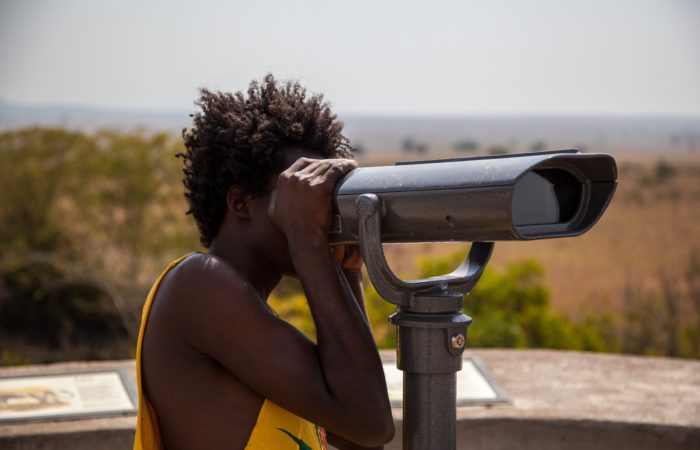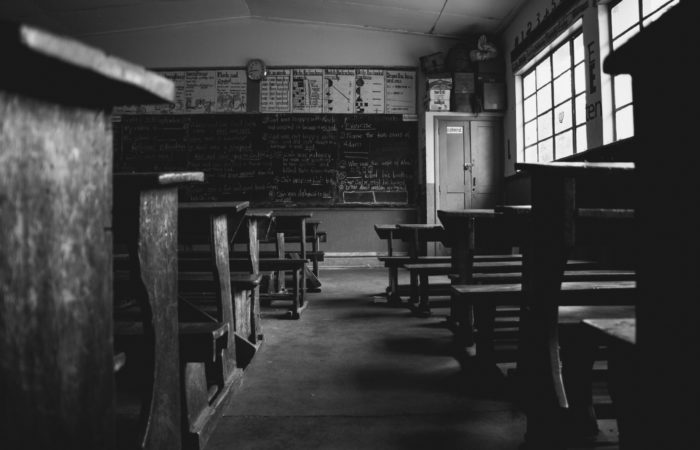
How to Pray in the Trenches: Pray for All the Lord’s People
The exhortation to pray for “all of the saints” should help us to look beyond our own inner circle, to pay attention to brothers and sisters who need God’s help, whether they’re in other churches in our city, or whether they live on the other side of the globe.
Read Post
How to Pray in the Trenches: Be Alert
Ephesians 6:18 urges us to remain watchful or alert when we pray. Yes, we do need to be physically awake to do this. But, more importantly, we need to pay attention. We need to be aware of what in our lives needs prayer. We must remember those for whom we have promised to pray. And, crucially, we must also attend to the still, small voice of the Holy Spirit. God will guide us as we pray but we must remain alert—ready to hear and respond as he speaks.
Read Post
If That Salt Has Lost its Savor, It Ain’t Got Much in its Favor
We are to be the peacemakers, the meek, the merciful, those who hunger and thirst for righteousness. When we are found in a place, our exercise of those virtues should be just like salt; we should change the flavor of the whole dish.
Read Post
Share Your Bread
At the beginning of this passage, the coming of God into the situation Isaiah addresses definitely means challenge, not comfort.
Read Post

How to Pray in the Trenches: Pray with All Perseverance
Remember that Ephesians 6:18 is not written to you as an isolated believer. Yes, it speaks to you personally. But it also speaks to you as a member of Christ’s body. Praying with perseverance comes as we pray together. It’s no accident that, in Acts 1:14, the disciples persevered in prayer because they “all joined together.” Their togetherness empowered their perseverance.
Read Post
How to Pray in the Trenches: Pray on All Occasions
This does not require us to pray in a way that is disruptive or disrespectful. A public school teacher, for example, could certainly pray silently in a classroom setting where vocal prayer would be inappropriate. Similarly, a CEO leading a stockholder meeting might pray quietly during a particularly challenging time without making a public display of it. Prayer is two-way communication with God. It’s not putting on a show.
Read Post
How to Pray in the Trenches: Pray in the Spirit
Ephesians 6 teaches us how to pray “in the trenches”—that is, in the battles we face each day as we seek to serve the Lord in a world that is hostile to his kingdom. Our “trenches” are the places where we struggle, where we need God’s power. These “trenches” include our workplaces, neighborhoods, cities, churches, and families.
Read Post
Do I Stay or Do I Go? Part 2
If you have a job you don’t like, you may be wondering whether you should stay or go. The answer isn’t always clear. While 1 Corinthians 7:20 suggests staying put, there are also plenty of biblical reasons to change jobs—including but not limited to slave-like conditions. For example, you may change jobs because God is calling you to more responsibility, as a “good and faithful servant” naturally moves on to bigger and better tasks (Matthew 25:21). Whatever you decide – stay or go – the message from 1 Corinthians 7:21 is that freedom through Christ is possible anywhere.
Read Post
Do I Stay or Do I Go? Part 1
But the meat of 1 Corinthians 7:20 is that your calling to follow Christ isn’t tied to any particular job or location. I’m not meant to follow God away from a cubicle and out to an island. I’m meant to follow Jesus in my attitudes and actions right here, wherever I am today.
Read Post

How to Pray in the Trenches: Introduction
I realize it may feel strange to think of prayer as a way of fighting. Prayer can seem pretty restrained, whereas fighting is vigorously active. Prayer is calming; fighting is upsetting. Yet, the more we come to understand what prayer really is, the more we’ll grasp its power to defeat our truest enemies as we share in God’s victory through Jesus Christ.
Read Post
Now That You’ve Got on God’s Armor, How Do You Fight?
A more literal translation would be, “Take the helmet of salvation and the sword of the Spirit . . . praying in the Spirit at all times.” The Greek participle meaning “praying” is dependent grammatically on the imperative “take.” In other words, once you’ve put on the armor of God, here’s what you do: Pray! You pray often. You pray in all sorts of ways. That’s how you fight the battle when wearing God’s armor.
Read Post
Putting on God’s Armor Together
But there is another way to think about wearing God’s armor—one that may not be as intuitive for people like me, a product of Western culture and its pervasive individualism. This passage also speaks to the actions of a church, a community of believers in Jesus. As we consider the implications of Ephesians 6:14-17, we ought also to ask: Is my church putting on the belt of truth, the breastplate of righteousness, and the shows of the gospel of peace? Are we together taking up the shield of faith, the helmet of salvation, and the sword of the Spirit?
Read Post
Making a Searching and Fearless Spiritual Inventory
My point is that the description of the armor of God can give us an inspired framework with which to examine our spiritual lives in a way that would be quite revealing. On the one hand, it could show us where God has been at work in us—where his grace has been transformative. On the other hand, it could also show us where we need to grow.
Read Post